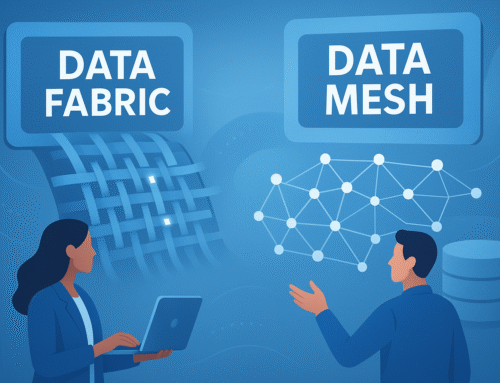In today’s highly competitive digital landscape, mobile apps are the cornerstone of brand growth, customer engagement, and operational efficiency. Whether you’re a startup or an established enterprise, investing in cutting-edge mobile app development services can set you apart from the crowd and deliver exceptional business results. This article explores in-depth how innovative mobile app development can elevate your brand and accelerate your success.
Why Mobile App Development Matters for Brand Growth
User Experience is the New Currency
Modern consumers expect seamless, intuitive, and high-performing mobile applications. A well-designed app enhances user satisfaction, improves retention, and fosters loyalty. By crafting apps that are both aesthetically pleasing and functionally superior, brands can create memorable digital experiences that convert casual users into loyal advocates.
Brand Visibility and Recognition
Having your app listed on platforms like the Apple App Store and Google Play Store ensures increased visibility. A professionally developed app, aligned with your brand identity, boosts brand recognition every time users interact with it—serving as a 24/7 marketing tool right in their pockets.
Data-Driven Insights for Smarter Decisions
Innovative mobile apps come equipped with advanced analytics capabilities that allow businesses to track user behavior, preferences, and engagement metrics. This data can be used to fine-tune strategies, improve features, and deliver hyper-personalized experiences to your users.
Features of High-Performance Mobile Apps
Cross-Platform Compatibility
Developers are now leveraging cross-platform frameworks such as Flutter, React Native, and Xamarin to build apps that work smoothly on both iOS and Android platforms. This not only reduces development time and cost but also ensures a consistent user experience across devices.
Robust Security Protocols
With increasing concerns around data breaches, top-tier mobile apps incorporate end-to-end encryption, multi-factor authentication (MFA), and biometric verification to protect user data and ensure compliance with GDPR and other data protection regulations.
AI and Machine Learning Integration
Integrating Artificial Intelligence (AI) and Machine Learning (ML) allows for intelligent features such as chatbots, predictive analytics, personalized recommendations, and voice recognition, which significantly enhance user experience and app utility.
Offline Functionality
Apps that offer offline access to core features ensure uninterrupted usability even when users lose connectivity—especially important in regions with limited internet access.
Industries Transformed by Mobile App Development
E-commerce and Retail
From mobile payments to personalized shopping experiences, mobile apps have revolutionized how consumers shop. Brands like Amazon, eBay, and Shein use mobile apps to generate billions in revenue through user-friendly interfaces and push notifications that drive sales.
Healthcare
Mobile apps in healthcare offer services like telemedicine, appointment scheduling, remote monitoring, and e-prescriptions. These apps are helping healthcare providers deliver patient-centric care more efficiently and effectively.
Finance and Banking
Banks and fintech companies use apps to provide secure, real-time access to accounts, payments, and financial advice. Features like facial recognition login and spending insights empower users to manage finances more smartly.
Education and E-learning
Educational institutions and e-learning platforms are leveraging mobile apps to offer virtual classrooms, interactive content, quizzes, and certification. This has made learning accessible and flexible for students worldwide.
Custom Mobile App Development: A Game Changer
Tailored to Your Business Needs
Custom mobile apps are built specifically for your brand’s needs and user expectations. Unlike off-the-shelf solutions, bespoke apps can incorporate specialized features, workflows, and branding that reflect your unique value proposition.
Scalable and Future-Proof
Custom development ensures your app can scale with your business, allowing the integration of new features and technologies as your needs evolve. This approach offers a higher return on investment in the long run.
Better Integration with Business Systems
Custom apps can seamlessly integrate with your existing CRM, ERP, payment gateways, and third-party APIs, ensuring a cohesive digital ecosystem that enhances operational efficiency.
Steps to Successful Mobile App Development
1. Discovery and Requirement Analysis
The process starts with a deep understanding of your business goals, target audience, and technical requirements. This phase helps define the project scope and functional specifications.
2. UI/UX Design
Creating a clean, attractive, and intuitive design is crucial. Wireframes and prototypes are developed to visualize the user journey and interactions, ensuring the final product is user-centric.
3. Agile Development
Using Agile methodologies, developers build and test the app in iterations. This approach encourages collaboration, flexibility, and faster delivery of high-quality products.
4. Quality Assurance and Testing
Rigorous testing is done to identify bugs, optimize performance, and ensure compatibility across devices. This includes functional testing, usability testing, security testing, and performance testing.
5. Deployment and Launch
Once the app is thoroughly tested, it is deployed on app stores and launched with a strategic marketing plan that includes ASO (App Store Optimization), press releases, and social media promotion.
6. Ongoing Support and Maintenance
Post-launch, continuous monitoring, updates, and feature enhancements are critical to ensure the app remains relevant and bug-free in a constantly evolving market.
Choosing the Right Mobile App Development Partner
When selecting a development partner, look for:
-
A strong portfolio with diverse industry experience
-
Expertise in both native and cross-platform technologies
-
A collaborative approach and transparent communication
-
Focus on security, scalability, and innovation
-
Proven track record in delivering on time and within budget
Future Trends in Mobile App Development
5G Technology
With 5G rollout, expect faster downloads, improved streaming, and more IoT integration in mobile apps. This will open new possibilities for AR/VR experiences and real-time interactions.
Augmented Reality (AR) and Virtual Reality (VR)
AR/VR is reshaping industries from real estate to education by offering immersive user experiences. Apps that leverage these technologies can significantly boost user engagement and sales.
Wearable App Integration
As wearables become more popular, apps are being optimized for devices like smartwatches and fitness bands. This creates new touchpoints for user interaction and health monitoring.
Voice Search and Smart Assistants
With the rise of Alexa, Siri, and Google Assistant, voice-enabled features are becoming a staple in mobile apps—improving accessibility and convenience for users.
Conclusion: Future-Proof Your Brand with Mobile Innovation
Investing in innovative mobile app development services is not just about keeping up with technology—it’s about positioning your brand as a leader in your industry. A well-designed mobile app can drive higher customer engagement, streamline operations, and create new revenue streams. Choose a development partner that understands your goals and has the expertise to bring your vision to life with scalable, secure, and high-performing mobile solutions.
Let your mobile app be the difference-maker that propels your brand to new heights.



Leave A Comment